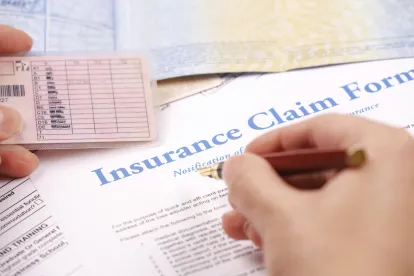Health care providers also have important responsibilities under the MSP law. Small and mid-sized providers should be on special alert, as they may lack the same level of centralized data processing and availability of in-house counsel to keep them informed of Medicare enforcement trends and regulatory requirements. Healthcare providers have MSP responsibilities, although they are less onerous than those placed upon GHPs and NGHPs. Generally, providers must implement certain procedures to determine each patient’s Medicare eligibility status and submit claims to the proper insurer for reimbursement. These procedures include asking the patient his or her Medicare eligibility status, checking the Common Working File, and creating and maintaining an internal database that stores information on each patient’s insurance coverage. When inquiring about a patient’s insurance coverage, providers are encouraged to use a CMS Questionnaire found on the CMS website.1 Providers must also submit an Explanation of Benefits (EOB) form with each claim to Medicare to ensure proper billing.2 Providers should inquire as to whether the reason the patient is being seen for treatment is prompted by an injury that would be covered by an NGHP provider, such as an automobile accident, fall, or injury in the workplace.
If a provider submits an improper claim to Medicare but receives a conditional payment, the provider must reimburse Medicare within 60 days of receiving the payment and will not be penalized if the provider maintains an internal database that stores information on each patient’s insurance coverage and the provider can show that the claim was submitted as a result of false information provided by the beneficiary or someone acting on the beneficiary’s behalf.3 However, if a provider does not reimburse a conditional payment within the timeframe mandated in a Medicare demand letter, it can face civil monetary penalties, such as paying interest on any outstanding payment and being assessed double damages.4
These rules are summarized below:
| Acting Party | Responsibilities | Liabilities for Non-Compliance |
| Providers |
· Investigate each patient’s Medicare eligibility by asking the beneficiary his/her Medicare status and by checking the Common Working File to verify each patient’s Medicare status
· Maintain a database that includes each patient’s insurance coverage · Properly bill Medicare · Include all relevant MSP information or Explanation of Benefits with Medicare claims · Reimburse Medicare in 60 days if improperly billed |
·Must pay interest on reimbursement if paid 60 days after issuance of demand letter
· Possible FCA liability if the claims to Medicare were false or fraudulent |
This is part 5 of 7 in the Medicare Secondary Payer Compliance series. Subscribe to our blog for future updates. Part 4 can be accessed here: Medicare Secondary Payer Compliance: Non-Group Health Plans (NGHPs) (Part IV)
Medicare Secondary Payer Compliance: Group Health Plans (Part III)
Medicare Secondary Payer Compliance: Conditional Payments (Part II)
Medicare Secondary Payer Compliance: An Introduction (Part I)
1. https://www.cms.gov/Medicare/Coordination-of-Benefits-and-Recovery/ProviderServices/Your-Billing-Responsibilities.html.
2. Medicare Secondary Payer Manual, Ch. 3 § 30.5.B.
3. 42 CFR § 489.20.
4. 42 CFR § 489.24.
Andrew Kuder contributed significantly to the preparation of this post.





 />i
/>i

